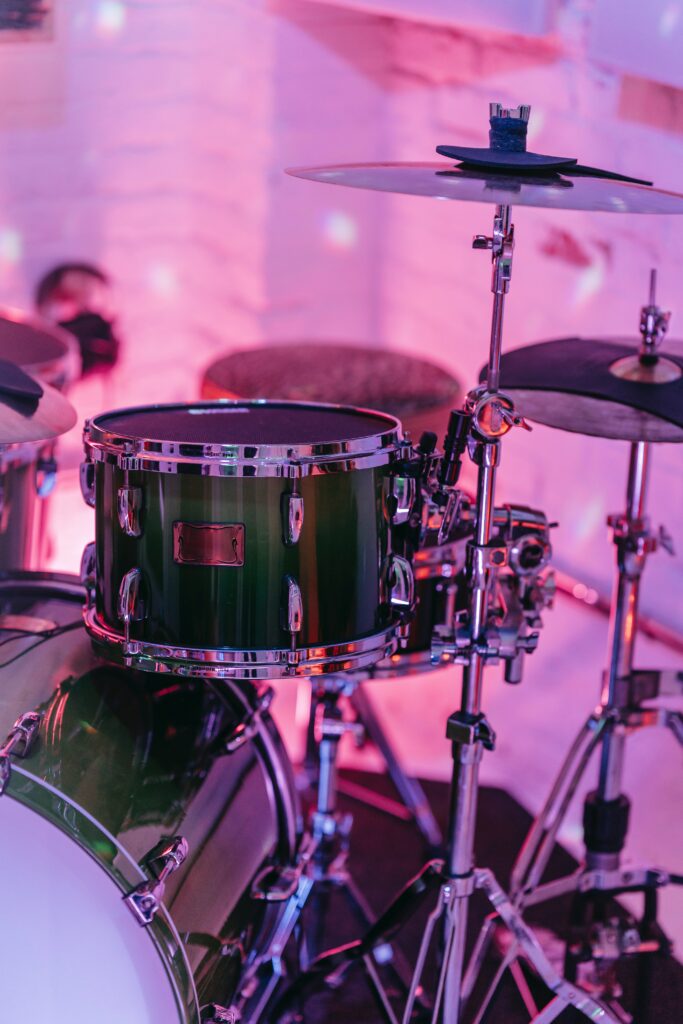If drumming is your passion, you know how tricky it can be to practice without annoying somebody. Unless you are lucky enough to live in the middle of nowhere or have the most understanding neighbors and family in the world, drumming can become a problem.
This leaves everyone frustrated as tensions rise and you end up getting noise complaints or police calls. Once this happens, it can become very difficult to practice at all. Below, we look at how you can still practice drumming without driving your family and neighbors nuts.
Practice Elsewhere
The easiest way to minimize the noise of drumming in your home or apartment is to find somewhere else to practice. If you or a friend has a garage, this is a good place to start but this isn’t always accessible. To get in a decent practice session before your first gig or band rehearsal, booking a rehearsal studio means you can drum away to your heart’s content, without having to worry about your family, housemates, or neighbors.
It may be that you need to look outside of your home, to somewhere more professional. PIRATE has a drum rehearsal studio to suit all drummer needs, plus they are open 24 hours a day, 7 days a week. If you work during the day and love to practice at night, doing so at home is probably not an option. Hiring a rehearsal studio takes the stress out of practicing for everyone involved. If you want to jam with friends or bandmates, they also come equipped with microphones, guitar and bass amps, a mixer, and a PA system.
Use Drum Mute Pads
If you still want to practice drumming at home, drum mute pads are a viable option that can help keep family and neighbors happy while still being able to work on music and technique. Drum mute pads are a silencing accessory that can be bought to fit any drum set, including cymbals and bass. Despite it not being the same as playing the drums normally, you are still able to go through timing, rhythm, and rudiments.
Drum mute pads cause no damage to your instruments either, which is great news. Although they can help you play quieter, be aware that they cannot completely block out the sound, so you should still try to practice during daytime hours. You should also speak to family and neighbors about the best time to practice. If you can hear that they are watching TV or playing music loudly, this is probably the perfect time to sneak some practice in, as you will barely be heard, if at all.
Get An Electronic Kit
Although you should still practice on a real drum set when you can, an electronic drum kit is a good option for your home. They do still cause noise, but more of a tapping than the actual sound of a drum kit, which is significantly better for people living with and around you. Electronic kits also come with additional sounds, they allow you to run backing tracks and can be played with headphones for a silent practice experience.
A good electronic drum kit can sound just as good as the real thing, feel good to play, and come at an affordable price. You can even choose to have a real set and an electronic set for times of the day where practicing on your regular set isn’t possible. The usual price for a starting set for beginners is a couple of hundred dollars, or you can look online for a secondhand set.
Soundproof Your Practice Room
To further increase the quietness of your drum practice, consider soundproofing the room you practice in. Soundproofing can be awfully expensive to do properly but if you don’t have the money: don’t worry, there will be budget options. There are affordable alternatives that can offer much-needed relief for loved ones. The first way to minimize sounds, especially from a bass drum is to practice in a carpeted room.
If your room has no carpets, you should go out and find a few thick rugs, as this can reduce the noise traveling downstairs. Any soft surface can help to absorb the sound, so put as many rugs as you can underneath your drums, even if your room already has carpets. You can also purchase door seal kits, which can reduce noise traveling outside the room. If you have a vent in your room, get a vent cover. If you can, get some acoustic absorbing materials that can be stuck to the walls and ceilings.
When drumming at home, use mute drum pads or get yourself an electronic drum kit to minimize noise. Soundproofing your practice room can also stop noise complaints. Don’t be discouraged by complaints from family and neighbors, hire a studio or find another space to get your drumming on instead.

